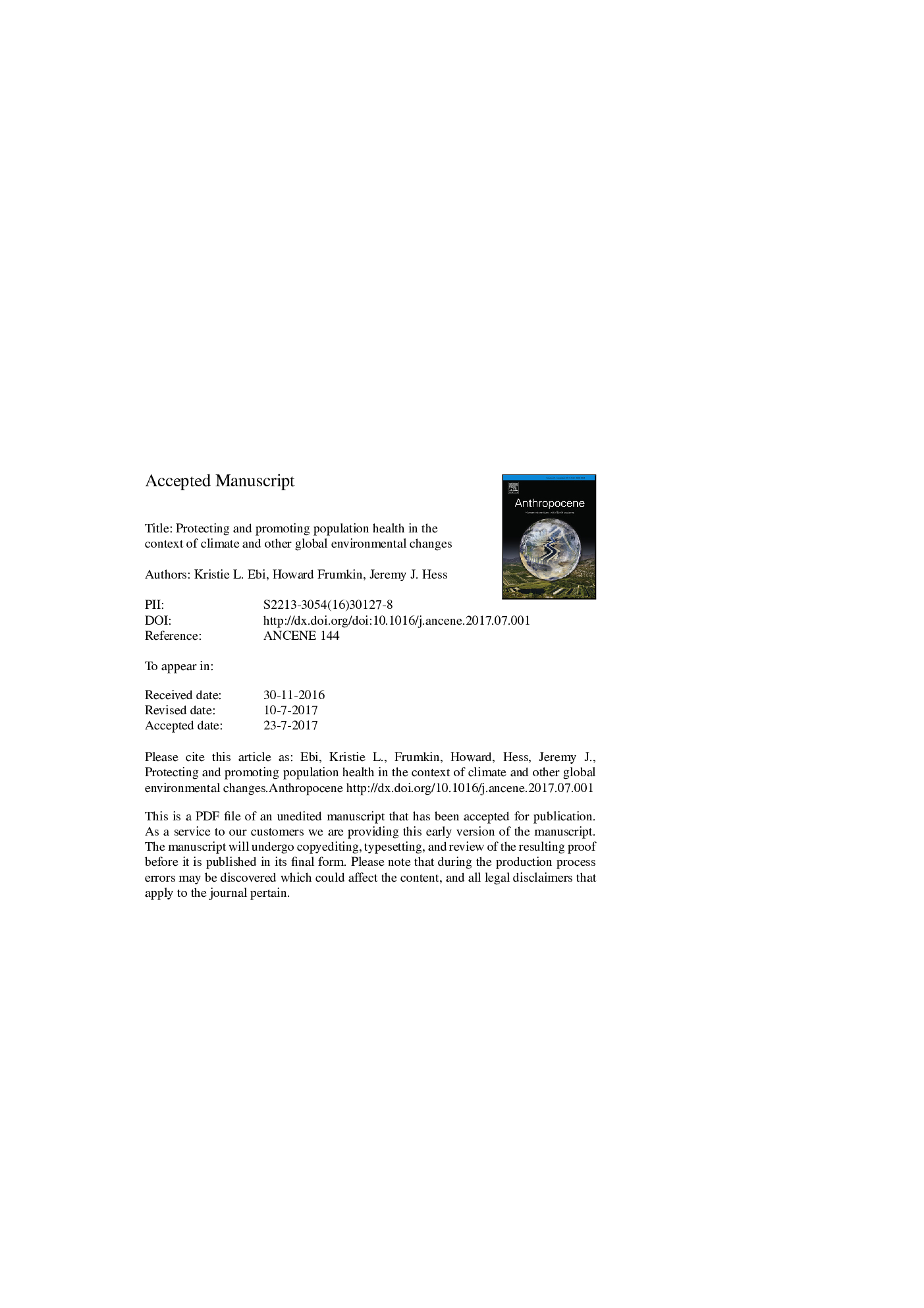| Article ID | Journal | Published Year | Pages | File Type |
|---|---|---|---|---|
| 5755076 | Anthropocene | 2017 | 31 Pages |
Abstract
The past 150 years have seen substantial public health advances globally. The intensive exploitation of energy and resources, the associated disruption of earth systems, and the resulting decline in some ecosystem services, however, threaten these advances. Global climate change, biodiversity loss, land use alterations, depletion of soil and water, and altered biogeochemical cycles drive these risks. Of these, climate change is the best studied with respect to human health. Adaptation is needed within the health sector, by strengthening public health and clinical care systems, and through collaboration with other sectors. This paper reviews health threats with an emphasis on climate change and then outlines a framework for prioritizing adaptation options based on: a) probability of adverse health impacts; b) effectiveness of protective interventions; and c) magnitude of the public health impact. The proposed framework can inform adaptation implementation, focusing on options that protect particularly vulnerable populations from climate change and other global environmental changes over coming decades.
Related Topics
Physical Sciences and Engineering
Earth and Planetary Sciences
Atmospheric Science
Authors
Kristie L. Ebi, Howard Frumkin, Jeremy J. Hess,
